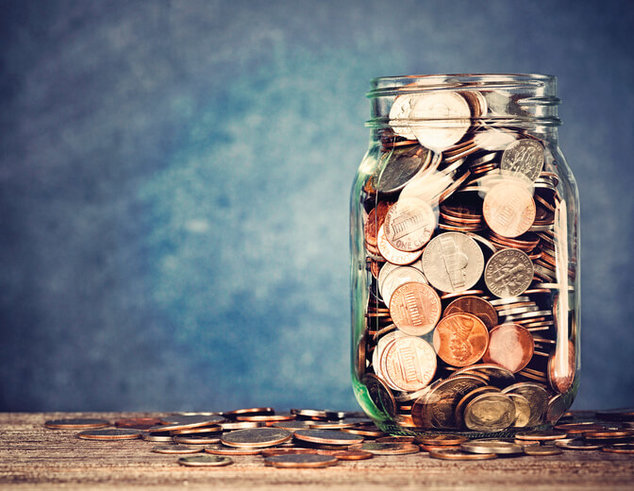Pay off student loans or invest — how to move toward funding retirement
In my recent post, "Why investing can be better than paying down debt," Dianecy's comment raised a question faced by many: What do you do about investing when you have student loans?
It is quite the dilemma, actually, because the best time to start funding your retirement is when you're still in your 20s. And as anyone who has been reading Get Rich Slowly for more than, say, 10 seconds would know, few things impede your progress toward getting rich (at any speed) like debt.
The reason is simple: A dollar can be spent only once -- either for another person's benefit or for yours. So it follows that repaying debt benefits the bank; investing those same dollars in a CD or index fund, on the other hand, benefits you and your future.
Why investing can be better than repaying debt
It's a difficult choice: On the one hand, you understand the need to begin investing early to make the miracle of compounding work for you; on the other hand, you know that, when you have debt, making those payments hampers the ability to harness the miracle of compounding.
So, what should you do with that $500 you have -- invest it or pay down the debt? The answer is not as simple as some make it out to be.
Reasons to repay debt first
1. Risk of disaster
As I mentioned in the article about starting to save for retirement, life is not always fair or kind. Most of us depend on a paycheck for everything: rent or mortgage, food, gas, utilities and so forth. When something happens, like losing your job, divorce or severe illness, those checks get smaller, or may even disappear temporarily. We can cut back some of our expenses like gas, clothing, etc. But some things are impossible to cut back. That list is usually headed by rent or mortgage payments and those monthly payments all other forms of debt require. You can't cut those back in times of trial.
How to start paying student loans – best practices guide
[This is the first installment in a series examining repaying student loans. Part II will discuss an alternative payment plan, Revised Pay As You Earn or REPAYE.]
As someone who started off her debt reduction journey on Get Rich Slowly with some pretty astronomical student loan debt, I've learned the hard way about the repayment process. And with school starting up again and many feeling tempted to borrow, I wanted to share some of that retrospectively gained wisdom.
A staggering number of college grads start their careers with student loan debt, and many of them struggle to get ahead as a result.
What will you do when your debt is paid off?
I've been in debt just once: during and after a two-year-long divorce, a time during which I was also a midlife university student. Good times!
Nineteen months after the divorce decree, I zeroed out my legal debt. I also took a deep breath for the first time in years. Unfortunately, I had no idea what to do with the extra money each month.
What I should have done: Visit a fee-only financial planner.
Why bankruptcy should be your last resort
A few years ago, I was at my lowest point financially. I was looking for a solution to rise above the financial crises I was experiencing and trying to find a way to keep my home out of foreclosure. I decided to contact a few agencies and a couple lawyers who all encouraged me to claim bankruptcy and start anew. The second lawyer sold me the bankruptcy dream, and I left his office with a sigh of a relief and plans to return with a $2,500 check to get my life back.
But I kept on researching; and I began to realize that, instead of being a quick fix, bankruptcy was a solution with a seven-to-10-year financial hardship to endure after that. I decided that would actually keep my life on hold instead of letting me start anew.
If you are thinking about going in this direction, please also give the following some consideration.
30 days to better finances

Learning to manage your finances isn't something most people would put at the very top of their "most fun thing to do" list, but we all know that we ignore money and budgets at our peril. Having a strong handle on what money is going in and what money is going out is an essential first step. But you don't have to be overwhelmed. By setting aside between five and 30 minutes each day, you can transform your finances dramatically in 30 days. Here's one such plan:
Day 1: Compile all your expenses and income. Bucket them by categories such as Savings (retirement accounts, emergency fund), Mortgage/Rent, Household Expenses (food, utilities, heating oil, etc.), Commuting (tolls, commuter rail cards), Debt Repayment (student loans), Entertainment. It doesn't have to be perfect, just complete. Use a service like Mint, software like Excel or even just good old pen and paper -- whatever you are comfortable with. Yearly budgets are more accurate because you will see irregular expenses like property taxes or gifts.
Related >> Building a budget on variable income
Living in a car to pay off debt
Some reader stories contain general advice; others are examples of how a GRS reader achieved financial success or failure. These stories feature folks with all levels of financial maturity and income.
I don't spend lavishly on clothes, hair appointments, or travel. I drive a 12-year-old Honda Civic. I got into debt by trying different business investments, including real estate and selling refurbished tablets. I also took out a student loan that I really didn't need but couldn't turn down the money I automatically qualified for. Those are the main sources of my debt.
My debt payments began to total more than $1,100 a month. I moved in with an aunt and uncle to make ends meet. When they wanted to raise the rent, it was the straw that broke the camel's back. I was fed up with my situation. I couldn't even afford to rent a room anymore.
Car payments: ‘Til death do us part
Your car breaks down on the side of the road … again. It's rush hour and it won't start. You have to have it towed and you're not happy about it. At all.
So what do you do?
You head to the local dealership in a fury, ready to replace it with something far more reliable, but also affordable. But the dealership has a few tricks up their sleeve and, according to Paul (the salesman helping you), it must be your lucky day. Amazingly, your car died at the most opportune time in history. Continue reading...
Why paying with cash hurts (and why it should)
These days, my monthly budget is on the boring side. Aside from our regular spending, I've got a mortgage payment to fork over, groceries to buy, and utility bills to pay. Throw in some payments to my kids' 529 plans and my SEP-IRA and I'm basically done for the month. After all of the bills are paid, the key for us is making sure that the rest gets transferred into savings so that it doesn't accidentally get spent.
But it wasn't always this way, and I was reminded of that fact the other day when I was flipping through one of my old notebooks. That's when I found our monthly zero-sum budget for August of 2010, and that's when our old lifestyle smacked me right in the face. Want to know how many bills I paid in that month? Twenty-four.
Car payments, credit card bills, and personal loans, oh my. It's no wonder we weren't saving anything. Fortunately, it was easy to look at that old monthly budget and pinpoint the exact cause of our unfortunate situation. The problem: We financed everything and never, ever paid cash.
4 steps to finding financial improvement
The two worst years of my financial life were 2007 to 2009. Before 2007, our income was low, but our expenses were low, too. We didn't save much, but we didn't spend more than we earned, either.
Then we saw our dream house. And we bought it while we still owned our first house. For two years, we had two mortgages. Suddenly, even though our income was slowly increasing, our expenses had skyrocketed. We cut our expenses as much as we could, but you can only cut them so much when you bought a fixer-upper with squirrel holes in the siding, leaking toilets that threatened to fall through the rotten bathroom floors, and desperately needing a new roof. (I guess we have low standards for our dream house!) As if that weren't painful enough, I was also trying to finish grad school. It was an ugly time, and I was desperate.
Along with our finances, my desperation also manifested itself physically: I gained about 25 pounds, and developed heartburn and other GI difficulties, along with some self-diagnosed depression. I was so tired all the time.

